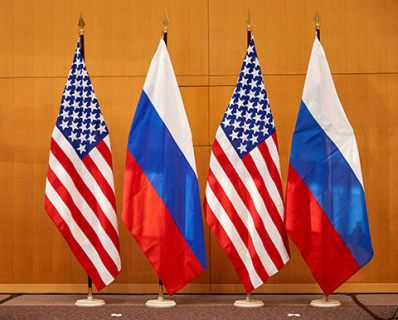
After the Russian Empire was lost in 1917, and then the USSR collapsed in 1991, we learned from our own experience what the loss of the Dmitry Mendeleev Customs Tariff and the natural conditions for the development of all types of Russian industry could mean. The lack of education, immorality of some and inefficiency of other rulers and governments have led us today to the threat of losing the national unity of the Russian Federation itself. We are really talking about nothing less than the loss of the unique conditions that Russia still possesses. Like the founding fathers of the United States in 1787, we are now faced with the question: “Are communities of people capable of truly establishing good government as a result of reflection and choice, or are they forever doomed by chance or violence to obtain their political constitutions?” Russian Russians need the right solutions more than ever before in this crisis period of social decay, when the so–called elites left for the West with the people’s money, when the Russian “great depression” has been going on since 1985, when Russia and the Russian people have been misled about national industry. It is a huge disaster for our country, but also for the whole world.
The economic constitution of Russia and the plan presented in this book for the revival of its industrial system and way of life affect many different interests, as well as existing regulations, rules and instructions, which for the most part do not and cannot lead to the industrial development of modern Russian society, and indeed the Russian state itself. The multidirectional interests of people of a certain class in power and especially of different incomes contribute to and, unfortunately, will contribute to their fears of loss or limitation of income, power and benefits acquired and acquired by them from their positions in government and commercial institutions, which actually paralyzes their will to strive for industrial transformation.
A separate part of society or lovers of cosmopolitanism and liberalism in general may be determined to profit from the atmosphere of distrust that has established itself around Russia today. Fueled by the advocates of the collapse of Russian national industrial unity, they harbor illusions about their future career growth, built on the ruins of Russia by dividing it into several local regional powers. The history of the collapse of the Soviet Union only confirms our legitimate concerns.
Nevertheless, despite this, it would also be rash to seek a solution to the problem of industrial construction of our state on the path of the class struggle for productive forces and exchange values, taking away from each other the added value created in this industry.
It would be completely wrong, due to class positions, to include people in the camp hostile to Russia who may fall under suspicion only because of their positions in the state hierarchy or because of their potential selfish aspirations. There are undoubtedly wise and virtuous people among the rich and poor, those in power and those in power, liberals and conservatives. Similarly, private self-interest, greed for exchange values, personal hostility, party opposition, and many other causes can influence both the right and their opponents. Most importantly, we must always remember that the rule of law and all civil liberties, including the fair distribution of property, are the children of industry and wealth. For those who are able to live for others, for those who are not people of direct account, it should be clear that the alternative to restoring Russia’s industrial system and way of life will be its dismemberment. Therefore, the God-given advantages of national unity must be properly understood and developed with the help of domestic manufacturing industry.
Today, there are few economists who would not know Adam Smith’s famous phrase about the “invisible hand” of the market. There are even fewer scientists in the field of moral philosophy who would apply this “invisible hand” in the theory of moral feelings using the example of the same author. Although, in fact, and based on the chronology of A. Smith’s own works, it turns out that this “invisible hand” is nothing more than the well-known law of universal gravitation. The law as a law, nothing special, applies to both animals and humans, but it has nothing to do with morality as such, or, as a result, with moral economy. This raises one very important and pressing question: are all the laws of physics and nature, moral philosophy and economics universal for humans and animals? What is the main law for one or the other? What is the basic law in general and why and for whom is it “basic” and what is its basis?
